| September 2019 Edition |
View in browser | Print |
 | 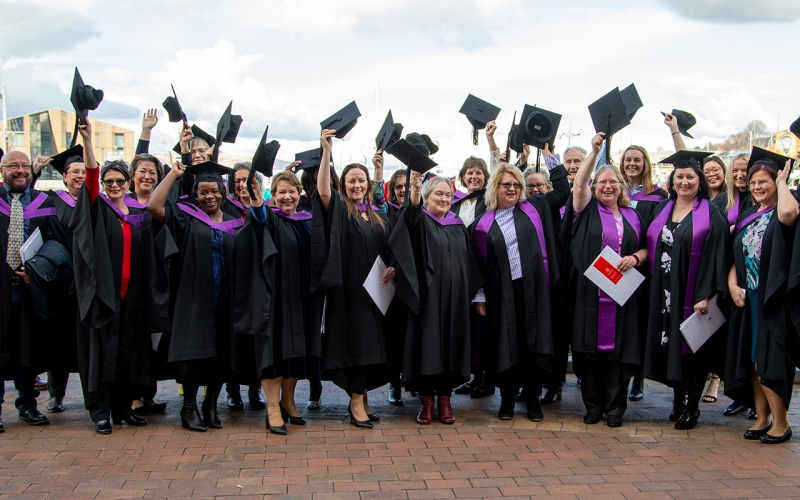 | | Welcome | 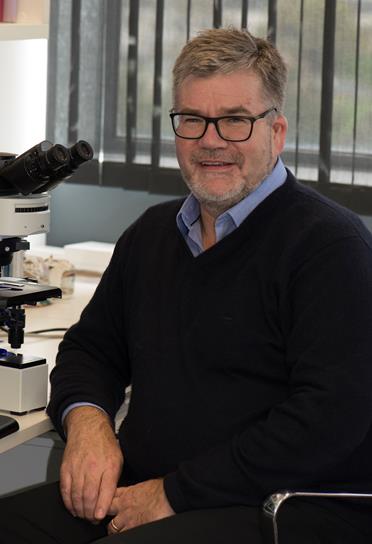
As you will read in this edition of the Wicking Dementia Centre newsletter, the new global ratings of Massive Open Online Courses (‘top 100’) have been released by Class Central. Both of the dementia MOOCs from the Wicking Dementia Centre are in this top 100, with the Understanding Dementia MOOC ranked number 4 and the Preventing Dementia MOOC at number 12. Together, this represents feedback from over 6,700 reviews! We always note that one of the great reasons for the success of the MOOCs is the enthusiasm and participation of enrolees while the courses are running. The sharing of stories and the responses to discussion forums add significantly to the ‘social learning’ dimension of the courses. We also very much appreciate feedback from participants, and continue to seek to adjust and improve the MOOCs based on the responses of people who undertake the courses. We still have very ambitious goals to get as many people as possible to enrol in the MOOCs, so if you have a chance to share the opportunity with friends, family and colleagues, we would greatly appreciate it. In August, we had a graduation ceremony in Hobart for our Dementia Care Degree program. It was a lovely occasion and we were very grateful to our graduates and their families who travelled from all over Australia and New Zealand to the event. Bachelor of Dementia Care graduate, Deborah Johnstone, was selected to present the Valedictory Address on behalf of all students in that ceremony. Deborah spoke movingly and eloquently about the challenges that her home city, Christchurch, has had with both geological and man-made disasters, and how resilience of the community was an important factor in the city’s response. Deborah also noted how completing the Bachelor of Dementia Care helped her in being able to provide the best possible care, and support the best quality life, for people with dementia in her professional role. Our thanks to Deborah for her powerful address, which you can see at this link. Since we started this degree program in 2012, the only one of its kind in the world, we have had 948 graduates – 614 with the Diploma, 159 with the Associate Degree and 175 with the Bachelor Degree. We are so very proud of all of our graduates and the positive impact they have on the lives of people with dementia.
|  | | Our Community |
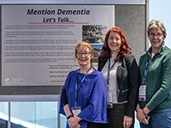 | 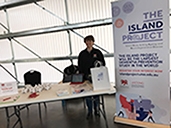 | 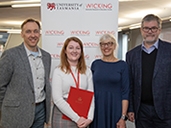 |
Mention Dementia Conversation Cards | We're getting ready to begin | Family experience drives passion for dementia research |
Over the past 12 months, Dr Kathleen Doherty and Dr Helen Courtney-Pratt have been working on the Dementia Conversation Card project, funded through a Dementia Friendly Communities Grant from Dementia Australia. This is a resource to improve engagement with people living with dementia across the community through conversation. Read more | Over 9000 Tasmanians have registered their interest in the ISLAND Project in just three months! What a tremendous effort and we thank you all for your support in registering and helping to spread the word about this important project for dementia risk and the health of our population. Read more | 2018 PhD student, Dr Kelsey Hanson, was inspired to pursue a career in dementia research by her grandfather’s journey with Alzheimer’s disease. Dr Hanson’s research dedication has been rewarded with the inaugural Emeritus Professor Lloyd and Ann Smythe Prize in Dementia Studies. Read more |
|
| Our Education |
 | 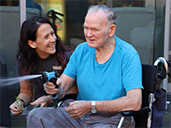 |  |
Preventing Dementia MOOC – open for enrolment | Turn your passion into a career | Online health education – top ranking |
With the ageing of the world’s population, dementia is a major public health issue. Is it possible to modify your risk of dementia? A substantial proportion of risk is associated with advanced ageing as well as genetic risk factors, but the latest research has indicated there are modifiable risk factors which may decrease your susceptibility to dementia. Do you know what they are? Find out in our FREE online course. ENROL TODAY | Had a taste of online learning through our MOOCs and want to learn more? Build on the knowledge gained from our MOOCs and study towards a Diploma of Dementia Care through the Dementia Care Degree Program.
HECS scholarships are available for eligible students (conditions apply). APPLY NOW for Feb 2020 | The University of Tasmania is leading the world in free online health education with three of its Massive Open Online Courses (MOOCs) ranking in the top 12 online courses internationally. The longest-running of the courses, the Understanding Dementia and Preventing Dementia MOOCs, are offered by the Wicking Dementia Research and Education Centre. Read more |
|
| Our Research |
 | 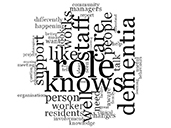 | 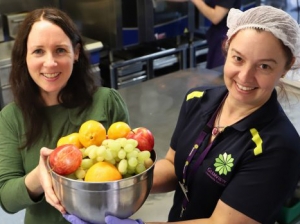 |
Spotlight on Dr Sharn Perry | Developing a new role in aged care | Improving food experience in aged care |
I have had the pleasure of discussing my research on the functional motor declines in neurodegenerative diseases at two national meetings this year; the Australian Dementia Forum and the Australia-Japan Joint Neurodegenerative Disease Symposium and was fortunate to be the recipient of two awards for my work in this field. Read more | Over two years this project explored the implementation of the Dementia Care Support Worker role, a new role for a care worker who recently graduated with a Bachelor of Dementia Care. The goal of this project was to develop the role, evaluate its impact and generate a framework for modelling roles in aged care, which capitalise on the strengths of Bachelor of Dementia Care graduates in care roles. Read more | The MENU project in Tasmania (Meaningful Engagement in Nutritional Understanding), involving two aged care facilities, is developing nutritional strategies that aim to reduce malnutrition among residents. MENU involves staff, family members and residents working with researchers and dietitians to identify changes that could be made to care practices relating to nutrition and hydration within their facility. (Courtesy of Australian Ageing Agenda)
Read more |
|
| News from the Community |
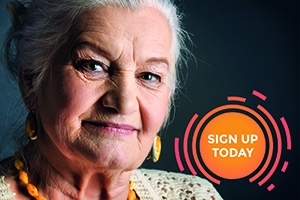 | 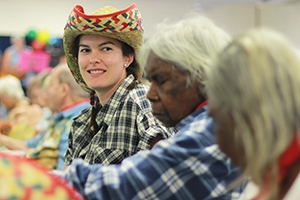 |
Step Up for Dementia Research | Dementia Friends program |
StepUp for Dementia Research is a matching service connecting people interested in dementia research with researchers conducting studies into dementia prevention, diagnosis, treatment, care and cure. Anyone in Australia aged 18 and over – both with and without dementia – can sign up. Based on characteristics such as age, location and diagnosis, volunteers will be matched to any studies they may be eligible for. To sign up today, visit the StepUp website or call 1800-7837-123.
Read more | The Dementia Friends program is a national program that aims to transform the way our nation thinks, acts and talks about dementia.
Dementia Friends have raised awareness of dementia and its impacts and want to make a positive difference to the lives of people living with dementia. By becoming a Dementia Friend, you are empowered to support a family member, friend, neighbour or co-worker living with dementia to feel accepted, included and involved. Register to become a Dementia Friend |
|
|
Stay connected:
|




|
utas.edu.au/wicking
|
| |
|
|